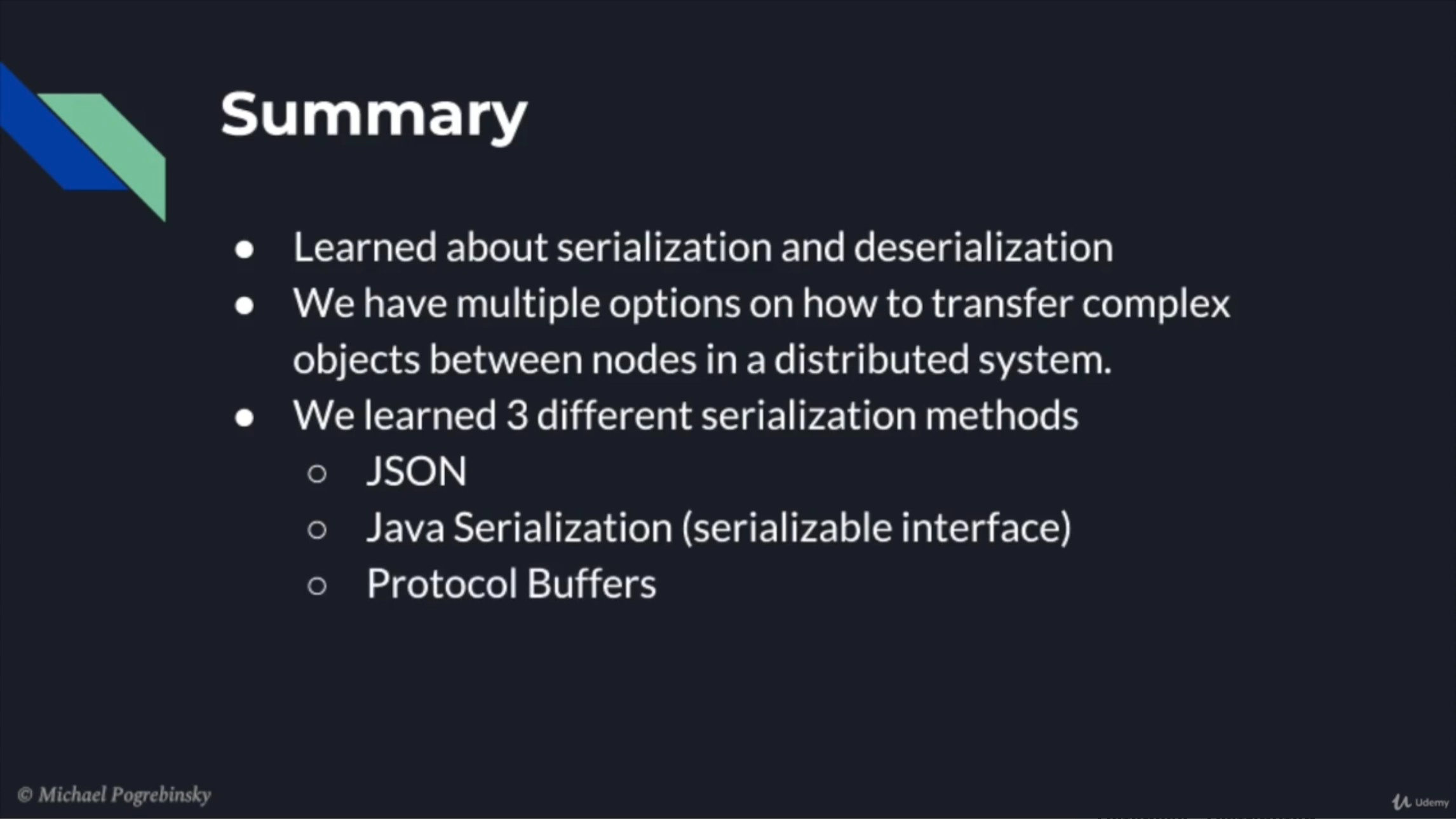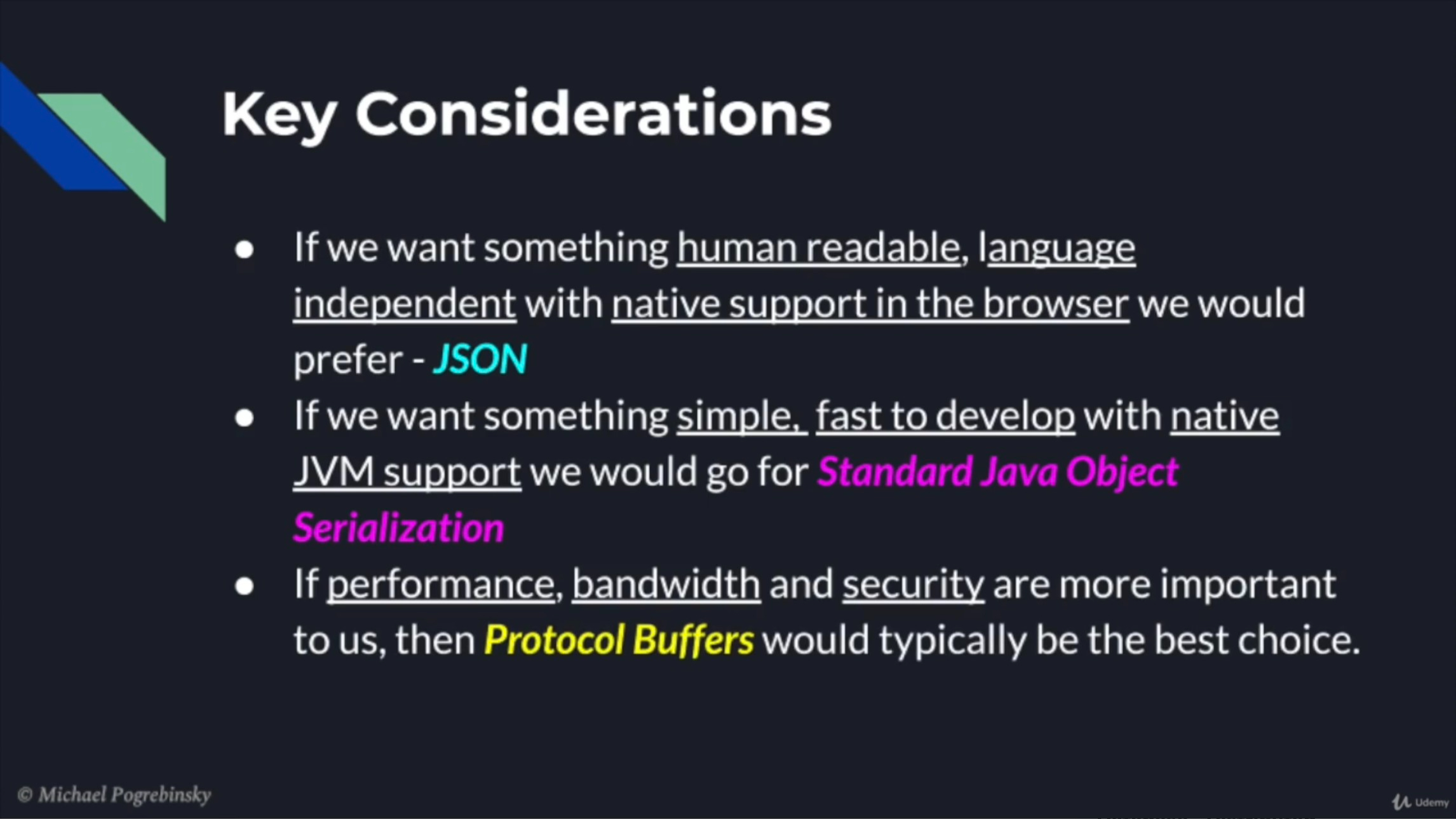1.JSON
- one of simplest and most popular formats
- We can represent an object in plain text with fields of type: String, Number, Boolean, Array, Object
Example:
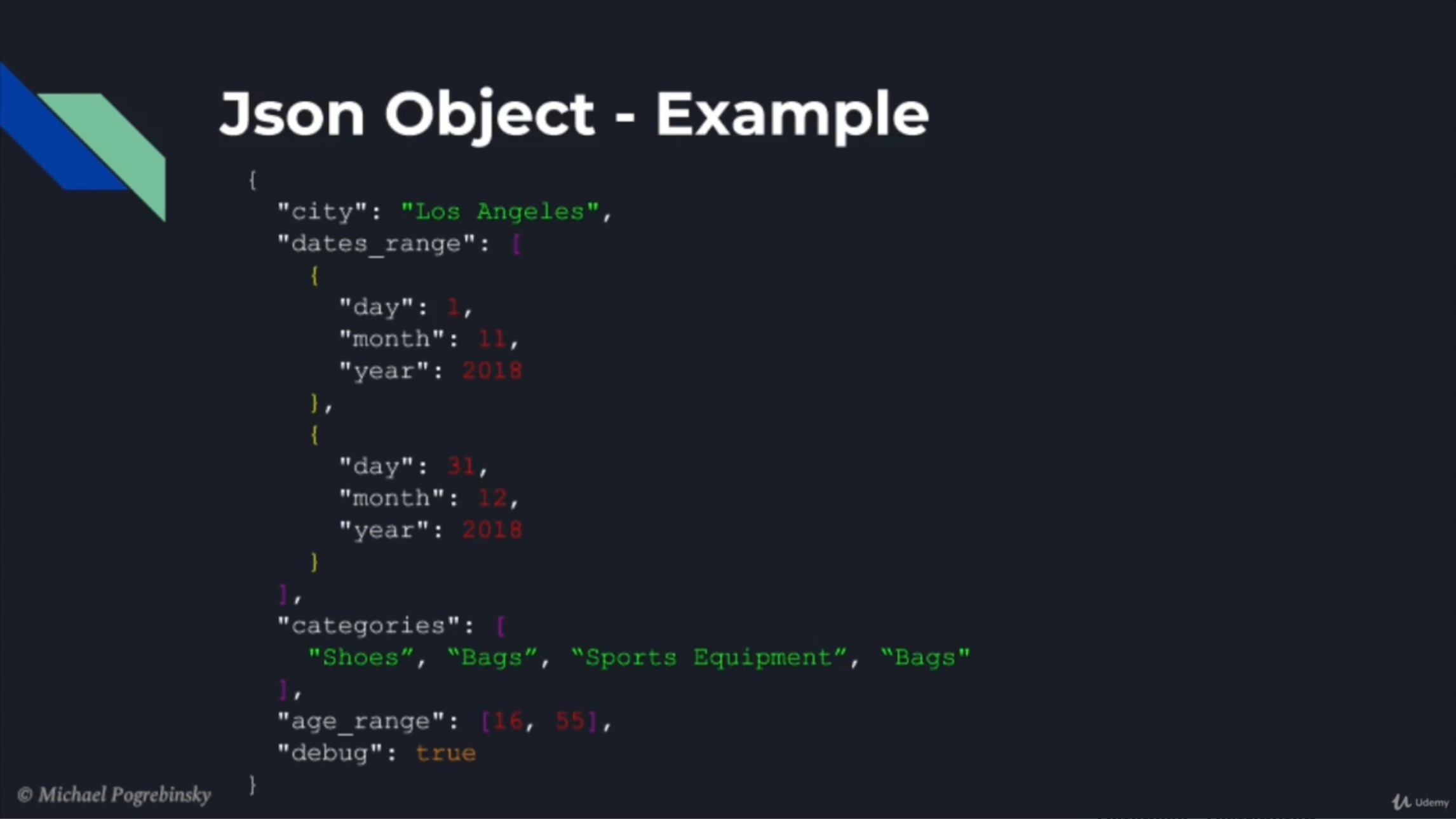
Adv:
- Simple and human readable
- Even after serialization we can understand it and debug it
- It's plain text so we can create the object and send it without any special software
- Programming language independent
- Easy integration with JavaScript/Front-End
- JavaScript Object Notation is very similar to JavaScript Object representation
Deserialization:
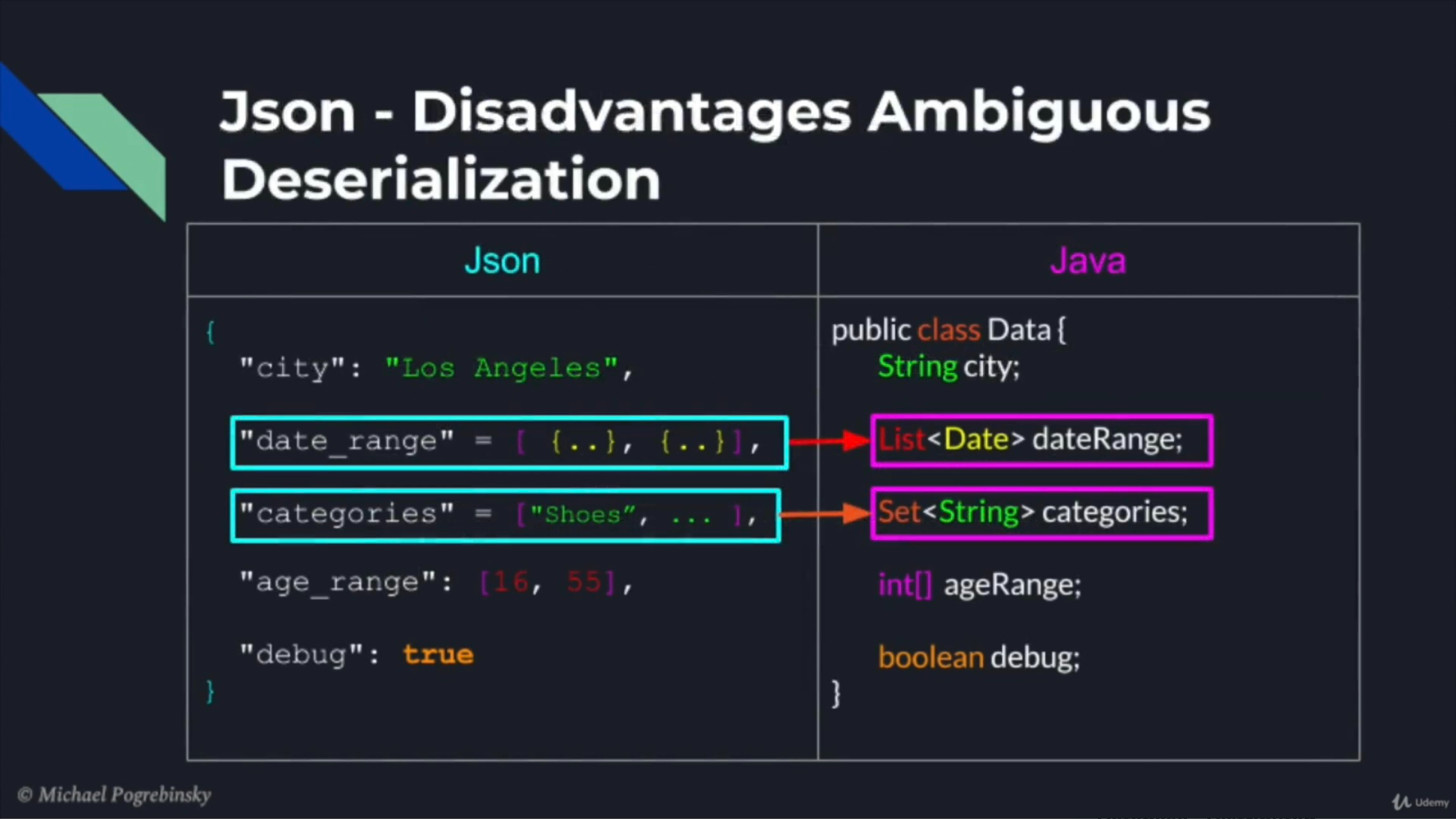
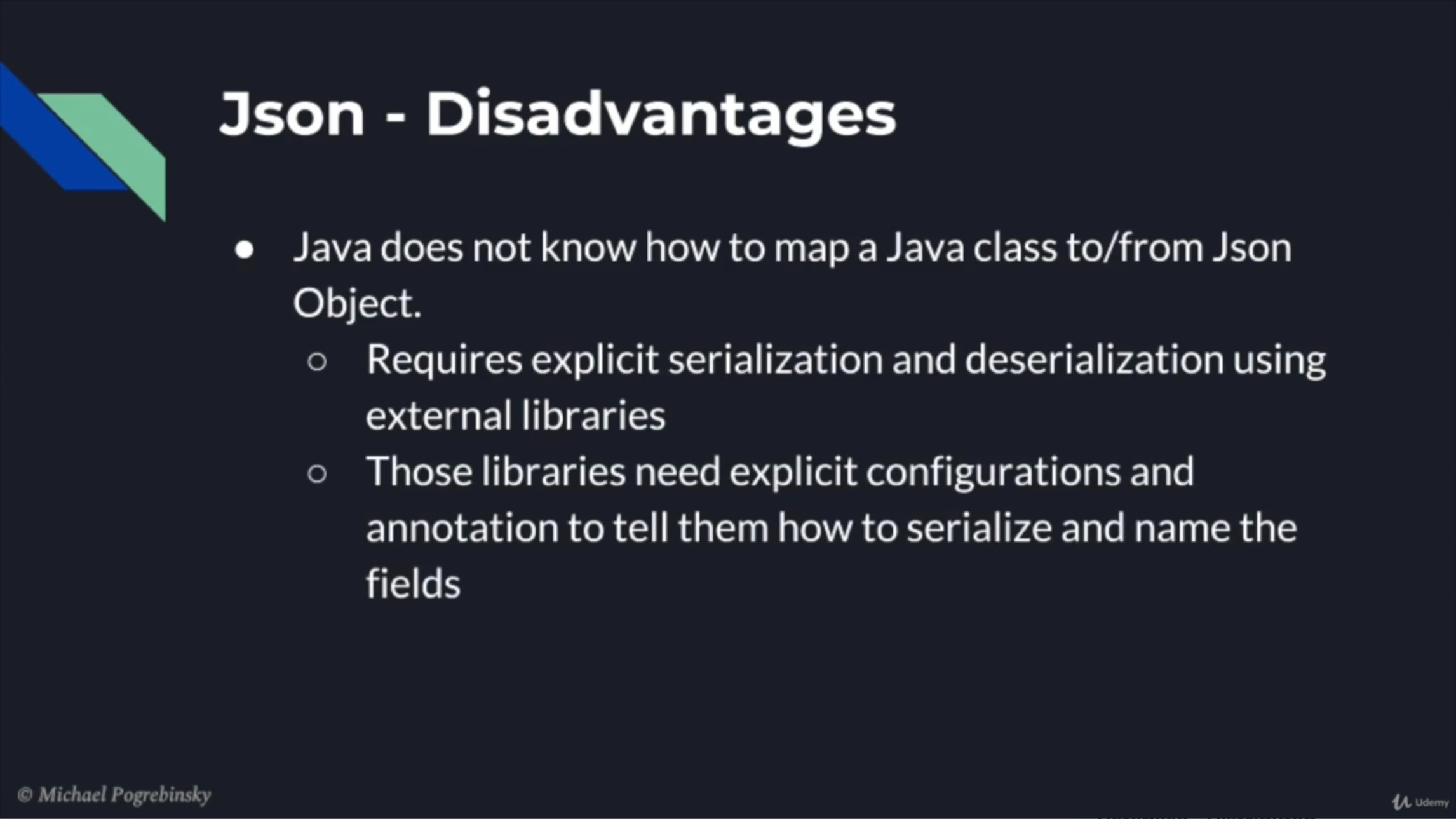
2. Java Object Seralization
- The class needs to match the original class definition
- The class has to have an accessible no-args constructor
- If either of the conditions are violated, we will get an InvalidClassException during the deseralization process
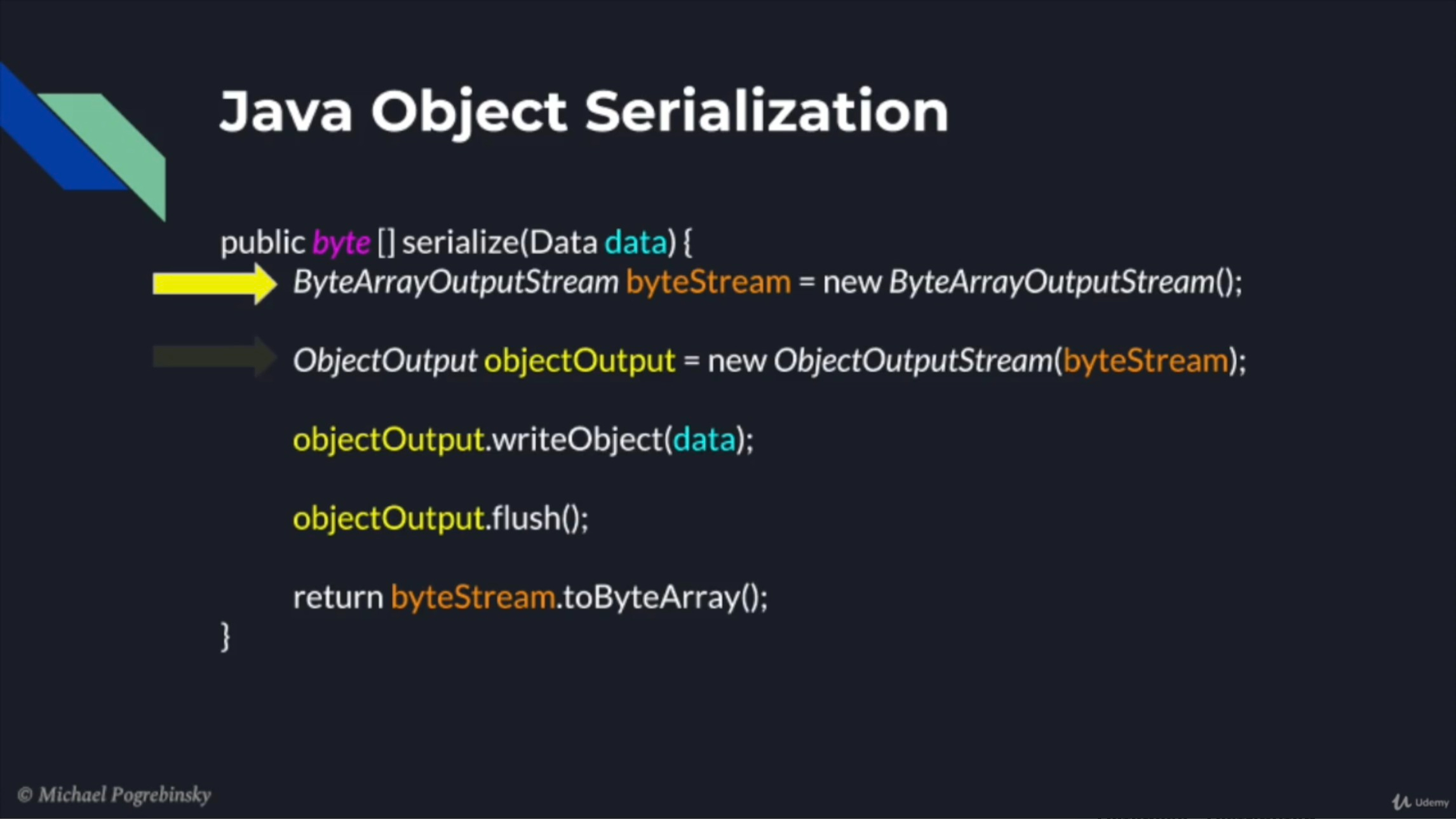
Advantages:
- Guarantees about correst state reconstruction without any type ambiguity
- Very clear source of truth for the object we want to send over the network
- Native support in all the JVM languages
- No need for external libraries
- Simple development process
Disadvantages:
- Not human readable, harder to test
- We need to import the class and write a Java program to send a message to the server
- Tight coupling to JVM languages
- Won't work if we want to exchange messages with applications written in Golong/G++ for example
- That is a big problem for building a distributed system that utilizes different technologies and runs on different platforms.
3. Google's Protocol Buffers
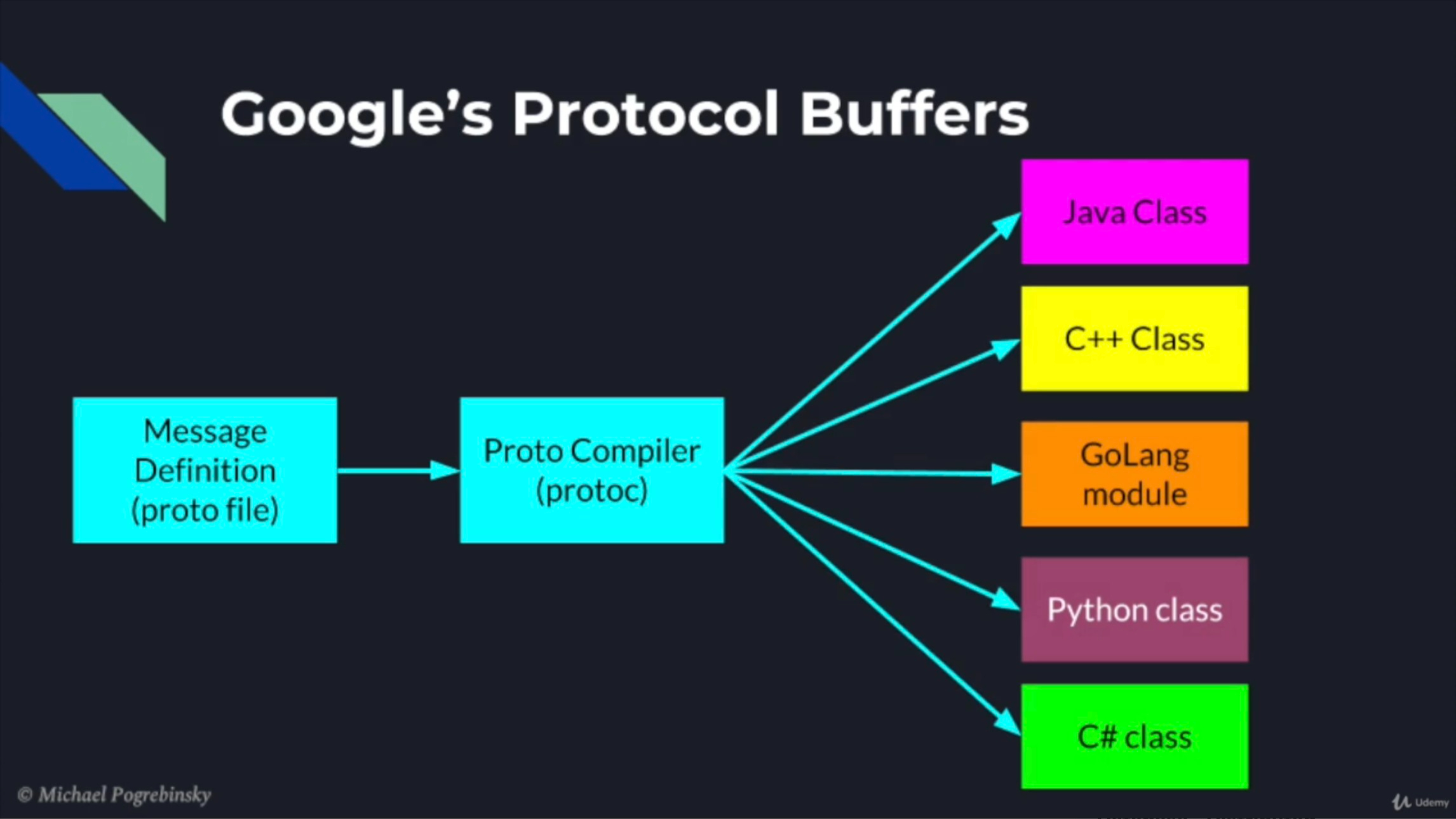
Advantages
- No type ambiguity
- Clear and well defined schema
- Language independent thanks to the 2 step process
- Proto file definition
- Language specific stub generation using proto compiler
- Efficient serialization & deserialization
- Security
Disadvantages
- Not Human readable
- Hard to debug
- More complex development process
- Proto file definition
- Stub generation
